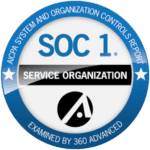Are your transportation operations as efficient as they could be? Imagine a tool that could streamline your entire fleet management process, optimize routes, track shipments in real-time, and significantly reduce costs—all while boosting customer satisfaction. A Transportation Management System (TMS) can do just that. Dive into how this powerful technology can transform your logistics and take your business to new heights.
Operations managers or supply chain managers understand the critical need to efficiently manage transportation needs. A Transportation Management System (TMS) can make this easier; it’s an automated tool that streamlines every aspect of fleet management, from optimizing routes to scheduling deliveries and tracking shipments. Let’s take a closer look at how a TMS can save your business time and money in the process.
Key Features
Transportation management systems (TMSs) are cloud-based software solutions designed to make shipping freight shipments simpler. With features such as automated route planning and optimization, real-time tracking capabilities, comprehensive reporting functions, integration with service providers, automated claim filing processes, and financial management tools – a modern TMS can reduce complexity and boost efficiency in the shipping process.
Here are some essential characteristics of a modern Transportation Management System (TMS):
- Automated route planning and optimization to reduce costs and boost efficiency.
- Real-time tracking capabilities provide insight into shipments.
- Comprehensive reporting functions compile data, analyze it, and identify key performance indicators.
- Integration with shipper ratings systems, customs clearance services and other service providers.
- Automated claim filing processes to quickly settle disputes that may arise.
- Financial management tools to manage payments, invoices and budgets effectively
How does a transportation management system function?
A TMS streamlines all aspects of transportation into one user-friendly system, from route optimization and carrier selection to shipment tracking and real-time updates. By leveraging cutting-edge technology, you can optimize routes for maximum efficiency while cutting costs associated with fuel or labor. Furthermore, with real-time updates, you’ll have the capacity to make informed decisions quickly, ensuring your business runs as smoothly as possible.
Benefits of a Transportation Management System
Utilizing a TMS offers businesses several advantages in terms of both cost savings and increased productivity. First off, it helps minimize manual errors due to data entry or incorrect calculations when planning routes or tracking shipments. Furthermore, it eliminates the need for multiple software programs or databases, saving both time and money over time. Moreover, having better visibility across all areas of your business ensures that each shipment arrives on schedule every single time.
The primary advantages of utilizing a TMS include:
- Reduce Costs: Transportation management systems (TMSs) offer significant cost benefits to both enterprises and their customers. TMSs simplify administrative tasks such as auditing, contract negotiation, payment processing, and order scheduling – thus improving time efficiency while minimising errors.
Comparing carrier rates is made simple with a TMS, making it simple to find the most cost-effective options. With automated rating comparison and load optimization capabilities that create pallets based on rules-based optimization, your company can gain efficiencies and scale at scale while cutting shipping expenses.
- Visibility in Real-Time: A Transportation Management System (TMS) gives you insight into a complex logistical process. With real-time tracking and traceability, you can monitor goods as they move between land, sea or air. Furthermore, TMS dashboards enable efficient operations by providing key performance indicators (KPIs).
Furthermore, it allows you to identify and assess the efficiency of optimal routes in real time – from finding shorter paths to overcoming unexpected obstacles. This enables greater optimization of your route for improved operational efficiency and cost savings.
- Increased Customer Satisfaction: In today’s rapidly-evolving global business landscape, meeting customer commitments is of the utmost importance. The “Amazon Effect” has driven up customer expectations for same-day delivery and strict adherence to promised delivery times.
Modern Transportation Management System (TMS) software gives businesses insight into potential delays, allowing them to identify problems before they lead to customer dissatisfaction and diminished loyalty. Furthermore, it simplifies tracking processes, billing procedures, payment processing – often even giving customers access to better rates negotiated by your business – for a superior end-customer experience.
Who Uses a Transportation Management System (TMS)?
Transportation management systems are commonly utilized by companies that rely on transport of goods, such as retailers and manufacturers. Third-party logistics providers, carriers, and freight brokers also rely on TMS technology for efficiency in their operations. TMS also provides organizations with analytical tools to monitor and enhance their supply chain processes.
Cloud TMS and New Technologies
Cloud-based Transportation Management Systems (TMSs) and new technologies are revolutionizing the logistics industry. Cloud TMS solutions offer scalability, accessibility, security, with real-time data to manage costs and optimize operations. AI-driven automation helps shippers quickly adapt to market changes while staying compliant with compliance standards. By leveraging digital tools such as cloud technology, AI analytics, visibility platforms or any combination thereof – businesses can improve their freight management by saving time and money spent managing processes.
Conclusion
A Transportation Management System is an invaluable asset for operations or supply chain managers looking to reduce costs while maximizing efficiency. Not only does it automate processes like route optimization and carrier selection, but it also provides real-time updates so you can make informed decisions quickly no matter the situation. Investing in a TMS won’t just save money; it will take your business to new heights! It not only saves you money but also allows for enhanced customer satisfaction due to faster delivery times plus reduced fuel usage or labor expenses–without sacrificing quality! Investing in a TMS won’t just save money; investing in one will take your business to greater heights!
Start streamlining your shipping processes today, with Hatfield and Associates’ TMS 2.0.
Transportation Management System FAQs
What is a Transportation Management System (TMS)?
Transportation Management System (TMS) is a software program designed to assist businesses in planning, executing, and monitoring their freight movements efficiently and cost-effectively.
How does a TMS aid in optimizing operations?
A TMS provides visibility and real-time data to facilitate informed decision making. It helps reduce shipping costs by streamlining processes like scheduling, route optimization, and cargo tracking while improving accuracy and timeliness of information.
What are some advantages to using a TMS?
Benefits of using a TMS include reduced operational costs, enhanced planning capabilities, faster delivery times, advanced analytics for tracking performance, streamlining booking and scheduling processes, enhanced shipment visibility for customers and suppliers, advanced reporting capabilities, higher customer service levels – the list goes on!
Can a TMS Improve Customer Service?
Yes! By giving customers real-time visibility into their goods’ whereabouts throughout the shipping process, this leads to improved customer service levels as they feel assured their order is progressing as expected. Furthermore, logistics providers have access to accurate data so they can quickly identify any issues or delays in transit so they can address them more promptly too – increasing overall customer satisfaction levels even further.
How Much Does Implementing a Transportation Management System Cost?
The cost of implementing a TMS will depend on the size and complexity of your supply chain requirements. Fortunately, many solution providers offer monthly subscription packages tailored to small businesses so you don’t need an enterprise level solution in order to start optimizing your logistics operations today!
Does My Company Need IT Staff or Engineers in Order to Utilize a TMS?
No, not necessarily! Many cloud based solutions available today make it possible for you to get up and running quickly without IT staff or engineering knowledge – though depending on the size and complexity of your operation you may find that investing in hiring tech personnel who can provide ongoing support when necessary could prove beneficial down the line.
What other software systems can I integrate my Transportation Management System with?
Your situation may differ, but most TMS systems today provide API/integration capabilities so you can easily link it up with other software solutions within your organization such as ERP/accounting systems or order management systems.
Can I customize the status of my Shipments within my Transportation Management System dashboard?
Yes – many modern cloud-based solutions on the market now provide feature sets that enable users to customize how shipments are tracked and reported on within their dashboard environment according to user preferences (e.g. setting up email alerts when certain milestones are reached).
Do we Need Special Hardware or Equipment to Run Our Cloud Based Transportation Management System?
No, cloud-based solutions typically cost less than traditional server platforms since no extra hardware is necessary beyond what companies already own. Furthermore, cloud-based models offer superior scalability through pay per use models instead of outright licensing costs associated with some alternatives.




